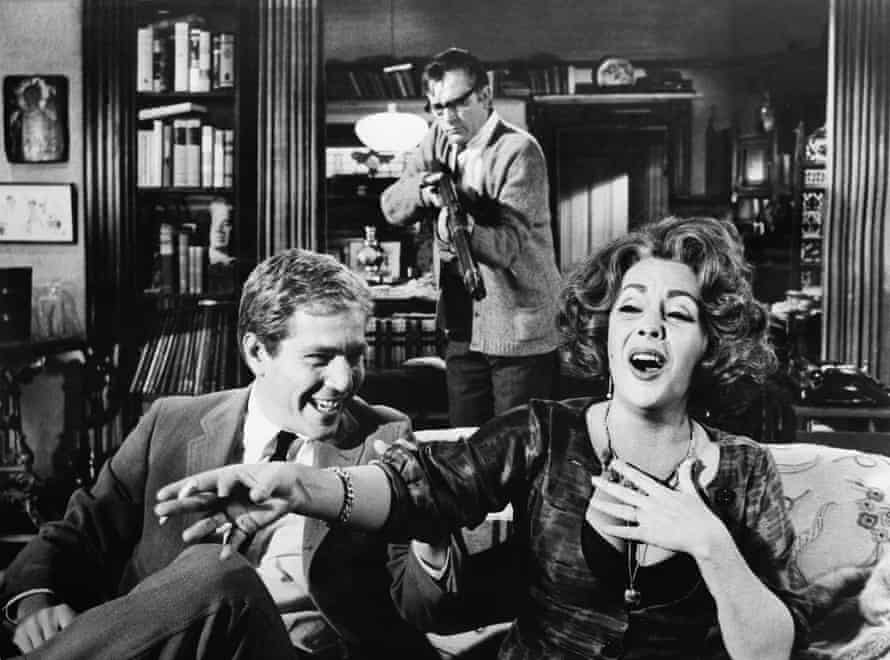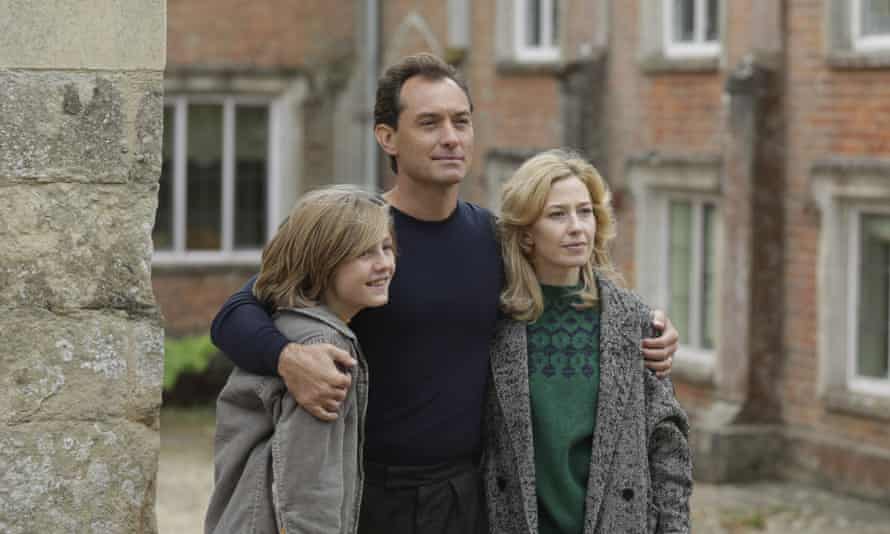“Yestagey” is a term often used as a snub against a film, evoking that rigid, musty feeling of confinement so peculiar to a bad play. It does not have to be like that. Some films use the constraints of the theater (small cast, single location) to match the intensity and intimacy of live performance on camera, fused with the specific benefits of close-up screen. American actor turned director Fran Kranz’s stunning feature debut, Mass (now broadcasting on Sky Cinema), is one of those movies. Set entirely inside a suburban Episcopalian church, and mostly within the four walls of a nondescript assembly hall, it’s theatrical in the most tense and uptight sense.
The setting is simple and harrowing: the church hall has been chosen as a neutral space for peace talks between two groups of parents who are both strangers to each other and inextricably connected by the tragedy of a school shooting, which most increasingly familiar with American atrocities. Depending on your point of view, there’s either a lot to say here or nothing at all: Eventually, they opt for the former, speaking through waves and counter-waves of pain, guilt, and white-hot anger.
You see him thinking that Kranz has done justice to what must have been an exceptional piece of work, although the surprise is that it is not an adaptation: an original script that deftly articulates a specific personal crisis against a wounded national conscience. In an exercise of four people talking, of course, it helps if all four turn out to be terrific actors. Jason Isaacs, Ann Dowd, Martha Plimpton and Reed Birney make an exquisite ensemble, one person’s anger bouncing off the other’s vulnerability, their silences as charged as their screams. It’s tempting to call it a showcase of great actors, but that makes it feel like the movie is under glass: Mass, for all its rigorous minimalism, feels purebred, with characters you want to get up close and touch.

Kranz’s debut thus joins an excellent subset of single-location films that feel bigger and richer than the sum of their parts, or the square footage of their set. Some of the best ones, of course, are taken straight from the boards. There has perhaps never been a better film-to-film transfer than Mike Nichols’ searing and bitter version of Edward Albee’s film. Who’s afraid of Virginia Woolf? (1966; Apple TV), which paid homage to the bilious text while discussing the fascination of Hollywood’s most volatile celebrity couple, Elizabeth Taylor and Richard Burton.
Hitchcock was an expert on single location cinema, also demonstrated in Lifeboat Y rear window – but in his 1948 film of Patrick Hamilton’s play Rope (Chili), the illusion of being shot in real time added a nervous urgency to its suspense mechanics. William Friedkin Underrated Bug (2006; Google Play), meanwhile, used the spatial constraints of Tracy Letts’ work to amplify the claustrophobic nature of her conspiratorial-minded psychodrama.
12 angry men (1957; Amazon) began as a television play and then made its way to the stage, but found its perfect form in Sidney Lumet’s gripping, debating court drama, which ensured that no one could do jury duty again without al least reflect briefly. a fair speech, me-against-the-world. There is no such bombast in the work of Louis Malle. my dinner with andre (1981; Curzon), who instead uses the constraints of his single restaurant table setting to tune into the capricious and tortuous rhythms of human conversation. Far from the brilliant naturalism of that film, Rainer Werner Fassbinder The bitter tears of Petra von Kant (1972; BFI Player) strikes a daunting melodramatic pitch as it explores female cohabitation and codependency from a woman’s bedroom.
Finally, single location movies don’t always have to be limited to big interiors. Wolfgang Fischer’s magnificent and little-seen maritime thriller Stygian (2018; Apple TV+) depicted a life-or-death refugee crisis on the deck of a small sailboat, while Steven Knight’s film loke (2013; Now TV), starring Tom Hardy, sees a family man’s life fall apart behind the wheel of a moving car on the freeway. Mass, in all its petite beauty, looks positively epic by comparison.
Also new on streaming and DVD

The nest
(image house)
Canadian writer-director Sean Durkin took 10 years to follow up on his breakthrough, martha marcy may marlene, with another feature, but this extraordinarily well-acted and chilling domestic nightmare, starring Jude Law and Carrie Coon, proves it wasn’t a lightning bolt. Following the trail of an Anglo-American family that is falling apart after moving into a Surrey mansion in the 1980s, it mixes searing marital drama with the heavy fear of a horror film.
Hitting Bad Luck or Loony Porn
(Amazon/AppleTV)
Romanian director Radu Jude won the Golden Bear in Berlin last year for this raunchy, raucous and intellectually sparkling black comedy, in which a Bucharest schoolteacher fights to save her job and clear her name after a sex tape your personal reaches the web. The shadow of the Covid era adds more layers of panicked chaos to a smug satirical provocation.
Dear Evan Hansen
(Amazon/AppleTV)
Last year brought us a glut of ambitious screen musicals with decidedly mixed results, none more underwhelming than this beige, bloodless adaptation of Tony and Olivier’s loaded hit about a teenage misfit caught in the ramifications of a reckless lie. Die-hard fans of the show may still be shaken, though it doesn’t give strangers any clues as to what the fuss was about.
www.theguardian.com
George is Digismak’s reported cum editor with 13 years of experience in Journalism